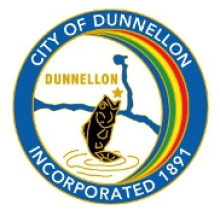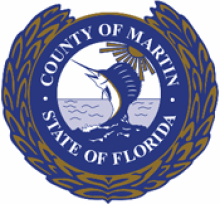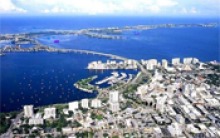Dunnellon, a small town in Marion County south of Gainesville, decided to invest in a community fiber network to spur growth and diversify its income stream. Though citizens did not want to cut government services, they have not been pleased at property tax increases.
364 days ago, we
published a story discussing their financing.
The town itself is quite small, with 1,733 residents but the network will be serving areas in the County as well. Though AT&T and Comcast offer services in the area, they have big gaps in coverage and apparently the cable television packages are antiquated (only 50 channels???).
An
article last year noted Dunnellon's Internet connections will range from 10Mbps to 125Mbps. They hope to sign up 1,647 subscribers within 6 months of launch -- the
network is named Greenlight (not sure if they were aware that the city of Wilson, NC, already operates a triple-play FTTH network called Greenlight).
They hoped to launch 6 months ago. Bill Thompson's "
Dunnellon dreams of a connectied future," offers a comprehensive look at the promise and the challenges Dunnellon faces.
Dunnellon's city manager comes from Valparaiso, which had a
city-owned cable network that upgraded to FTTH. Unfortunately, Dunnellon is in the hard position of building a network from scratch.

Building a new network requires a massive up-front capital investment - in this case the city will have spent $4.4 million to connect the first connection. Good thing they aren't all that expensive!
The article identifies two main sources of the delays: difficulty in getting on the poles owned by Progress Energy and long delays in receiving the fiber-optic cable they ordered (stimulus projects have hogged the supply). Rather than taking 12 weeks, they had to wait 30. Delays cause problems:
The installation delay has put the city in a pinch with its lender, Regions Bank.




 Building a new network requires a massive up-front capital investment - in this case the city will have spent $4.4 million to connect the first connection. Good thing they aren't all that expensive!
The article identifies two main sources of the delays: difficulty in getting on the poles owned by Progress Energy and long delays in receiving the fiber-optic cable they ordered (stimulus projects have hogged the supply). Rather than taking 12 weeks, they had to wait 30. Delays cause problems:
Building a new network requires a massive up-front capital investment - in this case the city will have spent $4.4 million to connect the first connection. Good thing they aren't all that expensive!
The article identifies two main sources of the delays: difficulty in getting on the poles owned by Progress Energy and long delays in receiving the fiber-optic cable they ordered (stimulus projects have hogged the supply). Rather than taking 12 weeks, they had to wait 30. Delays cause problems:


